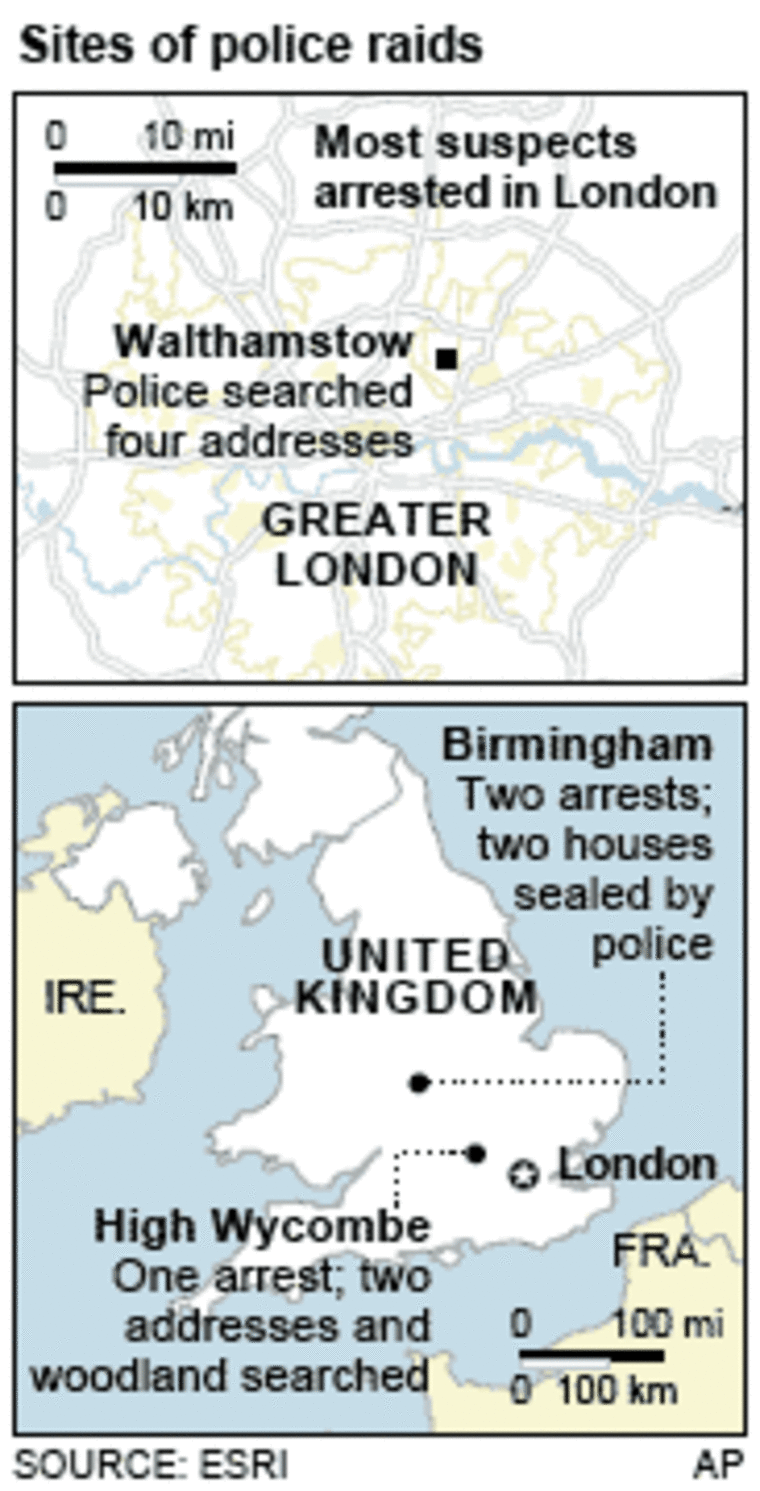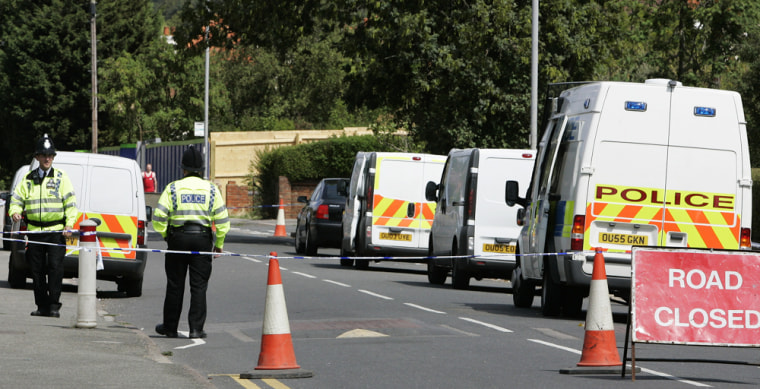Brothers arrested in Pakistan and England emerged Saturday as key figures in a suspected plot to destroy U.S.-bound aircraft during flight, while prominent Muslims in Britain accused the government of encouraging extremism through its foreign policy.
Pakistani intelligence agents were questioning at least 17 people, including British nationals, officials said. British police released one suspect Friday night but were continuing to question 23 others suspected of involvement to bring down as many as 10 airliners with innocent-looking liquid explosives.
A senior Pakistani security official said the arrest of Rashid Rauf, a British citizen, was followed within days by a telephone call from someone in Pakistan urging the British plotters to execute their plan.
“This telephone call intercept in Karachi and the arrest of Rashid Rauf helped a lot to foil the terror plan,” said the official, speaking on condition of anonymity.
Pakistan’s Foreign Ministry said Friday that Rauf was a “key person” in the investigation. His brother, Tayib Rauf, 22, was among the suspects arrested in Britain; police refused to comment on news reports that another brother was also detained.
The Pakistani official told The Associated Press that most of those linked to the plot in Pakistan had been arrested.
Among the two or three still at large, he said, was Matiur Rahman, a senior figure in the al-Qaida-linked Pakistani militant group, Lashkar-e-Jhangvi, whose name was mentioned by one of the detainees during interrogation.
Rahman is wanted in Pakistan in connection with sectarian attacks on minority Shiite Muslims in Pakistan, in two failed attempts on the life of Pakistani President Gen. Pervez Musharraf in December 2003, and attacks in Karachi against Westerners, the official said. Rahman is believed to have met with some al-Qaida operatives in recent years, he added.
Interior Minister Aftab Khan Sherpao on Saturday refused to share any information about Rahman’s possible links to the failed London terror plot.
'Ammunition to extremists'
Prominent British Muslims, including three members of Parliament, said in an open letter Saturday that “current British government policy risks putting civilians at increased risk both in the U.K. and abroad.”
The letter, printed in several British papers, said Britain’s intervention in Iraq and the failure to secure an immediate cease-fire between Israel and Hezbollah militants in Lebanon were providing “ammunition to extremists who threaten us all.”

“The debacle of Iraq and now the failure to do more to secure an immediate end to the attacks on civilians in the Middle East not only increases the risk to ordinary people in that region, it is also ammunition to extremists who threaten us all,” said the letter, which was signed by three of four Muslim members of Parliament and 38 Muslim groups, including the influential Muslim Council of Britain.
In Birmingham in central England, a great-uncle of the Rauf brothers described the family as deeply religious.
“Tayib is disabled. He lost his hearing in one ear because of a childhood sickness,” Qazi Amir Kulzum was quoted as saying in Saturday’s Birmingham Post.
“He is very, very polite, the kindest person you could hope to meet. He helps his father delivering cakes and confectionery. He prays five times a day. He has been to Mecca on pilgrimage. No one can believe that he would be involved in such matters.”
Kulzum said he had not seen Rashid Rauf for years.
He said the father, Abdul Rauf, immigrated to Britain from the Mirpur district of Pakistan several decades ago, and his five children were all born in Britain.
German contacts?
Suspects in the alleged plot “apparently” had some contacts with Germany, August Hanning, a deputy interior minister, was quoted as telling the Bild am Sonntag newspaper in an article to be printed Sunday. The report did not give details on the timing or nature of the suspected contacts.
The German weekly Focus reported, without citing sources, that a suspect arrested in Britain had contact with Nese Bahaji, the wife of fugitive Sept. 11 suspect Said Bahaji. It did not specify the suspect involved or say when the contact occurred.
Said Bahaji, a German national, is believed to have provided logistical support for the Hamburg cell that included three of the Sept. 11 suicide pilots. Bahaji fled Germany shortly before the Sept. 11 attacks and remains at large.
British Home Secretary John Reid told reporters officials were confident the main suspects in the plot were in custody. But authorities “would go where any further evidence takes us,” he said.
The British government released the names of 19 of the 24 arrested in Britain — many apparently British Muslims of Pakistani ancestry — and froze their assets.
The record of financial transactions, along with telephone and computer records, may help investigators trace more people in the alleged plot.
Extraordinary airport security measures continue
Britain kept its threat assessment level at “critical,” indicative of an imminent attack. Extraordinary security measures continued at British airports, although the backlog of passengers eased from Thursday’s chaotic conditions, when hundreds of flights were canceled. British Airways said about 10 percent of its flights were canceled Saturday.
The alleged plot called for the attackers to assemble their bombs aboard the aircraft, apparently with a peroxide-based solution disguised as beverages or other harmless-seeming items, and using such electronic equipment as a disposable camera or a music player as a detonator, two U.S. law enforcement officials told The Associated Press.
A U.S. intelligence official said they planned to deploy a couple of attackers per plane, and the two dozen plotters didn’t all know one another — a typical security measure in terror groups.
The British say their inquiry began months ago — prompted by a tip from within the British Muslim community after the bloody July 7, 2005, terror bombings of the London transit system, The Washington Post reported.
There were signs preparations stepped up recently. One of the houses raided by British police this week had been bought last month by two men in an all-cash deal, in a neighborhood of $300,000 houses, neighbors reported.
